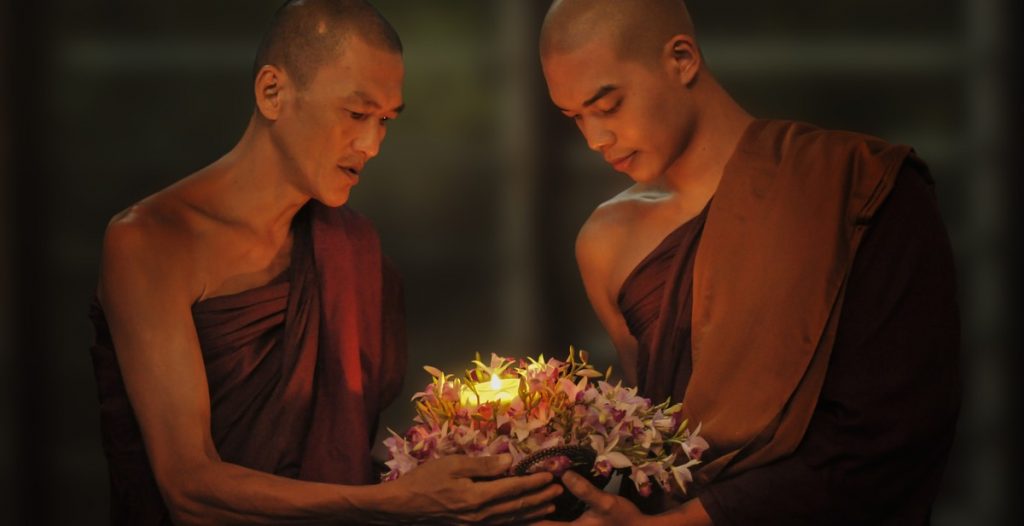The Role of Candles in Religious Ceremonies and Practices Throughout History
Candles have played an essential role in religious ceremonies and practices throughout history. From ancient times to modern-day, candles have been used by different religions and cultures to symbolize various spiritual and emotional aspects.
The Symbolism of Candles in Religious Ceremonies
Candles are often used as a symbol of light and purity in religious ceremonies. They represent the presence of a higher power, and their light is believed to dispel darkness and evil. In many religions, candles are also used to symbolize the soul or spirit of an individual.
In Christianity, candles are used during religious services to represent the light of Christ. The lighting of candles is also a common practice during prayer and meditation. In Hinduism, candles are used during puja (worship) to symbolize the presence of the divine.
The Historical Use of Candles in Religious Ceremonies
The use of candles in religious ceremonies dates back to ancient times. In ancient Egypt, candles were used to honor the gods and goddesses. In Buddhism, candles are used during meditation to symbolize the light of wisdom.
During the Middle Ages, candles were an essential part of Christian religious ceremonies. They were used to light churches and monasteries, and they also played a role in the celebration of Christmas and Easter.
The Importance of Candles in Modern-Day Religious Practices
Today, candles continue to play a significant role in religious practices around the world. They are used in different ways by different religions and cultures, but their symbolism remains the same. Candles are a symbol of hope, light, and purity, and they continue to inspire and comfort people in their spiritual journeys.

The Origins of Candles in Religious Ceremonies
The use of candles in religious ceremonies dates back to ancient civilizations, where they were primarily used for practical purposes. The Egyptians, for example, used candles to light their homes and temples, while the Greeks used them to honor their gods and goddesses. However, it was the Romans who began to use candles in religious ceremonies, particularly in the Christian faith.
During the early days of Christianity, candles were used as a symbol of Christ, who referred to himself as the light of the world. The candle’s flame represented the presence of Christ, and the light it gave off was seen as a symbol of hope and salvation. As Christianity spread throughout Europe, the use of candles in religious ceremonies became more widespread.
In the Middle Ages, candles were used in a variety of religious ceremonies, from baptism to funerals. They were also used in processions and during the celebration of the Eucharist. The use of candles in religious ceremonies continued into the Renaissance, where they were often used to create dramatic effects in religious paintings and sculptures.
Today, candles continue to play an important role in many religious ceremonies, from the lighting of the Advent wreath in the Christian faith to the lighting of the menorah in the Jewish faith. They are also used in many other spiritual practices, such as meditation and yoga.
Conclusion
The use of candles in religious ceremonies has a long and rich history, dating back to ancient civilizations. Today, candles continue to play an important role in many spiritual practices, providing a sense of peace, hope, and connection to the divine.

Candles in Christianity
Candles have been an important part of Christian religious ceremonies and practices throughout history. They are often used to symbolize the presence of God and the light of Christ. Candles are also used to create a sacred atmosphere and to enhance the spiritual experience of the worshipper. In Christianity, candles have different meanings and uses in the Catholic Church and Protestantism.
The Role of Candles in the Catholic Church
In the Catholic Church, candles are an important part of the liturgy. They are used during Mass, Adoration, and other sacramental rites. The use of candles in the Catholic Church dates back to the early days of Christianity, when Christians would light candles in the catacombs to honor the martyrs and to pray for their souls. Today, candles are used to symbolize Christ as the light of the world, the presence of the Holy Spirit, and the prayerful intentions of the faithful.
- During Mass, candles are used on the altar to symbolize the presence of Christ and the Holy Spirit.
- During Adoration, candles are used to create a prayerful atmosphere and to symbolize the presence of Christ in the Eucharist.
- Candles are also used during the sacraments of Baptism, Confirmation, and Anointing of the Sick to symbolize the presence of the Holy Spirit.
Candles in Protestantism
In Protestantism, candles are not as prominent as they are in the Catholic Church. However, they are still used in some denominations and for certain purposes. For example, in the Anglican Church, candles are used during the Eucharist to symbolize the presence of Christ. In the Lutheran Church, candles are used during Advent to symbolize the coming of Christ.
Overall, candles have played a significant role in Christian religious ceremonies and practices throughout history. They symbolize the presence of God and the light of Christ, and they create a sacred atmosphere that enhances the spiritual experience of the worshipper.

The Significance of Candles in Jewish Ceremonies
Candles have played a significant role in Jewish ceremonies for centuries. They are used to symbolize the presence of God, as well as to commemorate important events and holidays. Here are some of the most important ways in which candles are used in Jewish traditions:
Shabbat Candles
Every Friday evening before sunset, Jewish families light two candles to welcome the Sabbath. This tradition, known as lighting Shabbat candles, is a way of honoring the day of rest and creating a peaceful and holy atmosphere in the home. The candles are usually lit by the mother of the household, and the lighting is accompanied by a blessing.
Chanukah Candles
Chanukah, also known as the Festival of Lights, is an eight-day celebration that commemorates the miracle of the oil in the Holy Temple. During this holiday, Jews light a special nine-branched candelabrum called a menorah. Each night, an additional candle is added until all eight candles are lit on the final night. This tradition symbolizes the victory of light over darkness and the power of faith.
Yahrzeit Candles
Yahrzeit candles are lit in memory of loved ones who have passed away. They are traditionally lit on the anniversary of the person’s death, as well as during Yizkor services on Yom Kippur and other holidays. The candle burns for 24 hours and serves as a reminder of the person’s life and legacy.
Havdalah Candles
Havdalah is a ceremony that marks the end of Shabbat and the beginning of the new week. It is celebrated with a special candle, called a havdalah candle, which has multiple wicks. The candle is lit and held up to the face so that the light shines on the fingertips, symbolizing the separation between the holy and the mundane.
In conclusion, candles have a rich and meaningful history in Jewish ceremonies and traditions. They serve as a reminder of the presence of God, the power of faith, and the importance of honoring loved ones who have passed away.

The Use of Candles in Islamic Ceremonies
Candles have a significant role in Islamic ceremonies, serving as a symbol of enlightenment and guidance. Muslims use candles in various religious practices, including prayer, fasting, and celebration of festivals.
Prayer
Candles are commonly used during prayer times in mosques and homes. Muslims light candles to create a peaceful and serene environment during their prayers. The soft light from the candles helps to calm the mind and focus on the prayer.
Fasting
Candles are also used during the holy month of Ramadan, where Muslims fast from dawn to dusk. The candles are lit during the pre-dawn meal, known as Suhoor, and the evening meal, known as Iftar. The candles are used to signify the beginning and end of the fast.
Celebration of Festivals
Candles are also used during the celebration of festivals, such as Eid al-Fitr and Eid al-Adha. Muslims light candles in their homes and mosques to celebrate these festivals and to create a festive atmosphere.
Spiritual Significance
In Islam, candles hold spiritual significance, representing guidance and enlightenment. The soft glow of the candle symbolizes the light of Allah, which guides Muslims on the right path.
Conclusion
In conclusion, candles have played a significant role in Islamic ceremonies since ancient times. Muslims use candles to create a peaceful and serene environment during prayer, signify the beginning and end of the fast during Ramadan, and celebrate festivals. The spiritual significance of candles in Islam is the representation of enlightenment and guidance.

The Role of Candles in Buddhist Practices
Buddhism is a religion that emphasizes the achievement of enlightenment and inner peace. Candles play an important role in the religious practices of Buddhism, and are used in various ceremonies and rituals.
Symbolism of Candles in Buddhism
In Buddhism, candles represent the light of wisdom and the elimination of ignorance. They are used to symbolize the Buddha’s teachings, and to remind practitioners to strive towards enlightenment.
Uses of Candles in Buddhist Ceremonies
Candles are used in various Buddhist ceremonies, such as meditation sessions, funerals, and weddings. During meditation, candles are placed in front of the practitioner to help them focus and calm their mind. In funerals, candles are lit to guide the deceased to the next life. In weddings, candles are used to symbolize the union of two individuals.
Candle Offerings
Candles are often used as offerings in Buddhist temples and shrines. Practitioners light candles and offer them to the Buddha or other deities as a sign of respect and devotion. The act of offering candles is believed to bring merit, or good karma, to the practitioner.
Candle Colors and Meanings
The color of a candle in Buddhist practices can also hold significance. For example, a white candle represents purity and a yellow candle represents the Middle Way, or the path to enlightenment.
| Candle Color | Meaning |
|---|---|
| White | Purity |
| Red | Love and compassion |
| Yellow | The Middle Way |
Overall, candles play an important role in Buddhist practices and are used to symbolize enlightenment, offer respect and devotion, and guide individuals in their spiritual journeys.

Conclusion
Throughout history, candles have played a significant role in religious ceremonies and practices. From ancient civilizations to modern-day religions, candles have been used to symbolize spiritual enlightenment, purity, and the presence of the divine.
Religious traditions have used candles in a variety of ways, including as a source of light, as a symbol of prayer and devotion, and as a way to create an atmosphere of reverence and holiness. Candles have also been used in rituals and ceremonies to mark important occasions, such as births, deaths, and weddings.
Candles have also been used in different religions to represent different things. For example, in Christianity, candles are often used to symbolize the light of Christ and his presence in the world. In Buddhism, candles are used to symbolize the Buddha’s teachings and the path to enlightenment.
Today, candles continue to be an important part of religious practices and ceremonies. Whether used for meditation, prayer, or simply to create a peaceful atmosphere, candles remain a powerful symbol of spirituality and faith.
As we look back at the role of candles in religious ceremonies and practices throughout history, it is clear that they have played a vital role in shaping our spiritual traditions and beliefs. From the flickering flames of ancient temples to the glowing candles on our altars today, candles continue to inspire and uplift us in our quest for spiritual enlightenment.



